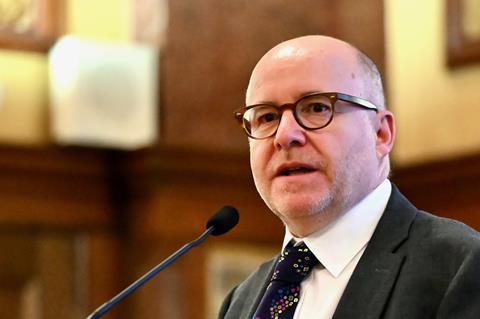Supporters of the European Convention on Human Rights must not fear talking about reform, the attorney general has said in a speech apparently designed to show ministers singing from the same hymn sheet on Strasbourg. 'We should not be afraid – indeed, must not be afraid - of discussing how the European system for the protection of human rights can be improved to ensure that the public are confident that it continues to serve the central purpose on which everyone agrees,' Lord Hermer (Richard Hermer KC) said in a speech circulated by the government this week.
Addressing the summer school of the Council of Europe - the ECHR’s parent body - in Liverpool, Hermer repeated his commitment to a 'strong international rules-based system'. The CoE, he said, 'has proved extraordinarily effective at protecting the foundational European values of human rights, democracy and the rule of law'.
However, ’This does not mean of course that every aspect of the Council of Europe must be preserved in aspic,’ Hermer said. Echoing the lord chancellor’s speech on the topic last month, he said: 'International organisations and their institutions must always evolve to ensure that they continue to serve their central purpose and that they retain the public confidence of every generation.'
One way to retain public confidence, he said, would be to put more stress on the principle of subsidiarity. Strasbourg judgments are 'too often… mischaracterised as an anti-democratic exercise in dictation from abroad'.

Read more
A first step in changing this perception would be to drop the expression 'execution of judgments' in favour of one that reflects the scope for local variation in the implementation of judgments. 'Execution' is a lawyer’s term, he said. 'The public’s understanding of execution is that it has something to do with capital punishment. That does not reflect the reality following a judgment of the European Court of Human Rights, which very often leaves considerable scope to the democratic branches to decide how best to respond to the Court’s judgment.'
As an example, he cited the UK’s implementation of the 2021 adverse ruling in Big Brother Watch v the UK on mass surveillance. This showed how parliament responded to a Strasbourg judgment 'to ensure not just rights compliance, but rights compliance in the national interest, and on the terms of a sovereign parliament.'
The attorney general concluded: 'We must counter the common perception of the court’s judgment on our national sovereignty and reflect the more nuanced reality.'
This article is now closed for comment.



























13 Readers' comments